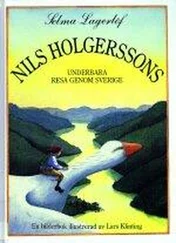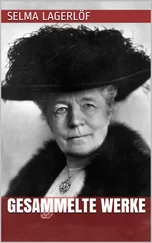Selma Lagerlöf - From a Swedish Homestead
Здесь есть возможность читать онлайн «Selma Lagerlöf - From a Swedish Homestead» — ознакомительный отрывок электронной книги совершенно бесплатно, а после прочтения отрывка купить полную версию. В некоторых случаях можно слушать аудио, скачать через торрент в формате fb2 и присутствует краткое содержание. Жанр: foreign_antique, foreign_prose, на английском языке. Описание произведения, (предисловие) а так же отзывы посетителей доступны на портале библиотеки ЛибКат.
- Название:From a Swedish Homestead
- Автор:
- Жанр:
- Год:неизвестен
- ISBN:нет данных
- Рейтинг книги:5 / 5. Голосов: 1
-
Избранное:Добавить в избранное
- Отзывы:
-
Ваша оценка:
- 100
- 1
- 2
- 3
- 4
- 5
From a Swedish Homestead: краткое содержание, описание и аннотация
Предлагаем к чтению аннотацию, описание, краткое содержание или предисловие (зависит от того, что написал сам автор книги «From a Swedish Homestead»). Если вы не нашли необходимую информацию о книге — напишите в комментариях, мы постараемся отыскать её.
From a Swedish Homestead — читать онлайн ознакомительный отрывок
Ниже представлен текст книги, разбитый по страницам. Система сохранения места последней прочитанной страницы, позволяет с удобством читать онлайн бесплатно книгу «From a Swedish Homestead», без необходимости каждый раз заново искать на чём Вы остановились. Поставьте закладку, и сможете в любой момент перейти на страницу, на которой закончили чтение.
Интервал:
Закладка:
The whole crowd was jubilant at seeing them dance. The serious little companion of the blind man smiled all over her face, and Hede grew much excited.
Just fancy what an effect his violin could have! It made people quite forget themselves. It was a great power to have at his disposal. Any moment he liked he could take possession of his kingdom. Only a couple of years' study abroad with a great master, and he could go all over the world, and by his playing earn riches and honour and fame.
It seemed to Hede that these acrobats must have come to tell him this. That was the road he should follow; it lay before him clear and smooth. He said to himself: 'I will – I will become a musician! I must be one! This is better than studying. I can charm my fellow-men with my violin; I can become rich.'
Hede stopped playing. The acrobats at once came up and complimented him. The man said his name was Blomgren. That was his real name; he had other names when he performed. He and his wife were old circus people. Mrs. Blomgren in former days had been called Miss Viola, and had performed on horseback; and although they had now left the circus, they were still true artists – artists body and soul. That he had probably already noticed; that was why they could not resist his violin.
Hede walked about with the acrobats for a couple of hours. He could not part with the violin, and the old artists' enthusiasm for their profession appealed to him. He was simply testing himself. 'I want to find out whether there is the proper stuff for an artist in me. I want to see if I can call forth enthusiasm. I want to see whether I can make children and idlers follow me from house to house.'
On their way from house to house Mr. Blomgren threw an old threadbare mantle around him, and Mrs. Blomgren enveloped herself in a brown cloak. Thus arrayed, they walked at Hede's side and talked.
Mr. Blomgren would not speak of all the honour he and Mrs. Blomgren had received during the time they had performed in a real circus; but the directeur had given Mrs. Blomgren her dismissal under the pretence that she was getting too stout. Mr. Blomgren had not been dismissed: he had himself resigned his position. Surely no one could think that Mr. Blomgren would remain with a directeur who had dismissed his wife!
Mrs. Blomgren loved her art, and for her sake Mr. Blomgren had made up his mind to live as a free artist, so that she could still continue to perform. During the winter, when it was too cold to give performances in the street, they performed in a tent. They had a very comprehensive repertoire. They gave pantomimes, and were jugglers and conjurers.
The circus had cast them off, but Art had not, said Mr. Blomgren. They served Art always. It was well worth being faithful to Art, even unto death. Always artists – always. That was Mr. Blomgren's opinion, and it was also Mrs. Blomgren's.
Hede walked quietly and listened. His thoughts flew restlessly from plan to plan. Sometimes events happen which become like symbols, like signs, which one must obey. There must be some meaning in what had now happened to him. If he could only understand it rightly, it might help him towards arriving at a wise resolution.
Mr. Blomgren asked the student to notice the young girl who was leading the blind man. Had he ever before seen such eyes? Did he not think that such eyes must mean something? Could one have those eyes without being intended for something great?
Hede turned round and looked at the little pale girl. Yes, she had eyes like stars, set in a sad and rather thin face.
'Our Lord knows always what He is about,' said Mrs. Blomgren; 'and I also believe that He has some reason for letting such an artist as Mr. Blomgren perform in the street. But what was He thinking about when He gave that girl those eyes and that smile?'
'I will tell you something,' said Mr. Blomgren; 'she has not the slightest talent for Art. And with those eyes!'
Hede had a suspicion that they were not talking to him, but simply for the benefit of the young girl. She was walking just behind them, and could hear every word.
'She is not more than thirteen years old, and not by any means too old to learn something; but, impossible – impossible, without the slightest talent! If one does not want to waste one's time, sir, teach her to sew, but not to stand on her head. Her smile makes people quite mad about her,' Mr. Blomgren continued. 'Simply on account of her smile she has had many offers from families wishful to adopt her. She could grow up in a well-to-do home if she would only leave her grandfather. But what does she want with a smile that makes people mad about her, when she will never appear either on horseback or on a trapeze?'
'We know other artists,' said Mrs. Blomgren, 'who pick up children in the street and train them for the profession when they cannot perform any longer themselves. There is more than one who has been lucky enough to create a star and obtain immense salaries for her. But Mr. Blomgren and I have never thought of the money; we have only thought of some day seeing Ingrid flying through a hoop whilst the whole circus resounded with applause. For us it would have been as if we were beginning life over again.'
'Why do we keep her grandfather?' said Mr. Blomgren. 'Is he an artist fit for us? We could, no doubt, have got a previous member of a Hofkapell if we had wished. But we love that child; we cannot do without her; we keep the old man for her sake.'
'Is it not naughty of her that she will not allow us to make an artist of her?' they said.
Hede turned round. The little girl's face wore an expression of suffering and patience. He could see that she knew that anyone who could not dance on the tight-rope was a stupid and contemptible person.
At the same moment they came to another house, but before they began their performance Hede sat down on an overturned wheelbarrow and began to preach. He defended the poor little girl. He reproached Mr. and Mrs. Blomgren for wishing to hand her over to the great, cruel public, who would love and applaud her for a time, but when she grew old and worn out, they would let her trudge along the streets in rain and cold. No; he or she was artist enough, who made a fellow-being happy. Ingrid should only have eyes and smiles for one, should keep them for one only; and this one should never leave her, but give her a safe home as long as he lived.
Tears came into Hede's eyes whilst he spoke. He spoke more to himself than to the others. He felt it suddenly as something terrible to be thrust out into the world, to be severed from the quiet home-life. He saw that the great, star-like eyes of the girl began to sparkle. It seemed as if she had understood every single word. It seemed as if she again felt the right to live.
But Mr. Blomgren and his wife had become very serious. They pressed Hede's hand and promised him that they would never again try and persuade the little girl to become an artist. She should be allowed to lead the life she wished. He had touched them. They were artists – artists body and soul; they understood what he meant when he spoke of love and faithfulness.
Then Hede parted from them and went home. He no longer tried to find any secret meaning in his adventure. After all, it had meant nothing more than that he should save this poor sorrowful child from always grieving over her incapacity.
II
Munkhyttan, the home of Gunnar Hede, was situated in a poor parish in the forests of Vesterdalarne. It was a large, thinly-populated parish, with which Nature had dealt very stingily. There were stony, forest-covered hills, and many small lakes. The people could not possibly have earned a livelihood there had they not had the right to travel about the country as pedlars. But to make up for it, the whole of this poor district was full of old tales of how poor peasant lads and lassies had gone into the world with a pack of goods on their backs, to return in gilded coaches, with the boxes under the seats filled with money.
Читать дальшеИнтервал:
Закладка:
Похожие книги на «From a Swedish Homestead»
Представляем Вашему вниманию похожие книги на «From a Swedish Homestead» списком для выбора. Мы отобрали схожую по названию и смыслу литературу в надежде предоставить читателям больше вариантов отыскать новые, интересные, ещё непрочитанные произведения.
Обсуждение, отзывы о книге «From a Swedish Homestead» и просто собственные мнения читателей. Оставьте ваши комментарии, напишите, что Вы думаете о произведении, его смысле или главных героях. Укажите что конкретно понравилось, а что нет, и почему Вы так считаете.












